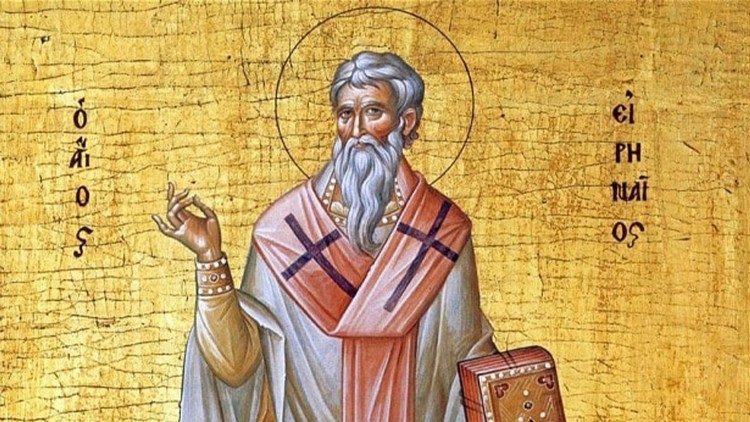Fr Leonard E Dollentas
Saint Irenaeus of Lyons, whose feast we celebrate on the 28th of June, just before Saints Peter and Paul, was recently declared a Doctor of the Church by Pope Francis.
The announcement, prior to the official declaration, was made by Pope Francis during his audience with members of the St Irenaeus Orthodox-Catholic Joint Working Group in the Vatican. This group has chosen St Irenaeus of Lyons as their spiritual patron because he is revered as a Patristic Father in both the Eastern and Western Churches.
During the audience, the Pope declared: “Your patron, Saint Irenaeus of Lyons – whom soon I will willingly declare a Doctor of the Church with the title Doctor Unitatis – came from the East, exercised his episcopal ministry in the West, and was a great spiritual and theological bridge between Eastern and Western Christians. His name, Irenaeus, contains the word ‘peace’. We know that the Lord’s peace is not a “negotiated” peace, the fruit of agreements meant to safeguard interests, but a peace that reconciles, that brings together in unity.”
St Irenaeus was added to the other ancient doctors of the church who have provided the Church and all people with an immense number of treatises, teachings, commentaries, spiritual reflections, and homilies – for theological studies and spiritual nourishment. The original Greek doctors – the Great Eastern Fathers of the Church – are Athanasius, John Chrysostom, Gregory Nazianzen, and Basil the Great. The first four Latin doctors – the Great Western Fathers – are Augustine, Ambrose, Jerome, and Gregory the Great. The official number of doctors would roughly double from 1870 and the succeeding periods.
St Irenaeus grew up in the East (Asia Minor) and served as bishop in the West (Lyons), and his life thus represents an example of the spiritual connection between the churches in East and West, which the Working Group seeks to promote through its discussions.
Designating an already-canonized Saint as a doctor is not really about conferring honors, but would indicate that the saint’s writings are considered to offer key theological insights for the faith.
But what does the Church need to learn today that Irenaeus can teach us? I remember my theology professor telling us that the extant works of St. Irenaeus are difficult for even graduate students to grasp. Kaitlyn Dudley Curtin, who writes a monthly column for Patheos wrote: “In his remarks about Irenaeus, Pope Francis indicated that Catholics and Orthodox already find themselves in harmony regarding this ancient theologian. The official designation of Irenaeus as a doctor walks the Roman Church one step closer to the East. Many Christians have resigned themselves to division, and few list the reunion of all Christians as an achievable priority or even desirable goal. For Irenaeus, in contrast, only unity of belief and of communion made any sense at all. Fracture was a sign of falsehood, and heresy the product of a lack of virtues such as charity and humility. For this doctor, the accuracy of truth claims – in particular, about the Incarnation, the goodness of creation, and God’s desire to make salvation known to all – was everything. His faith rested on the reliable handing-down that was so obvious in his own life.”
Declaring his admiration for St Irenaeus, Pope Benedict XVI, on his General Audience St Peter’s Square on March 28, 2007, said:
“Irenaeus was first and foremost a man of faith and a Pastor. Like a good Pastor, he had a good sense of proportion, a wealth of doctrine, and missionary enthusiasm. As a writer, he pursued a twofold aim: to defend true doctrine from the attacks of heretics and to explain the truth of the faith clearly. His two extant works – the five books of The Detection and Overthrow of the False Gnosis and Demonstration of the Apostolic Teaching (which can also be called the oldest ‘catechism of Christian doctrine’) – exactly corresponded with these aims. In short, Irenaeus can be defined as the champion in the fight against heresies.”
St Irenaeus is best remembered for his famous maxim Gloria Dei, vivens homo – “The glory of God is the human person fully alive.”


 Follow
Follow


